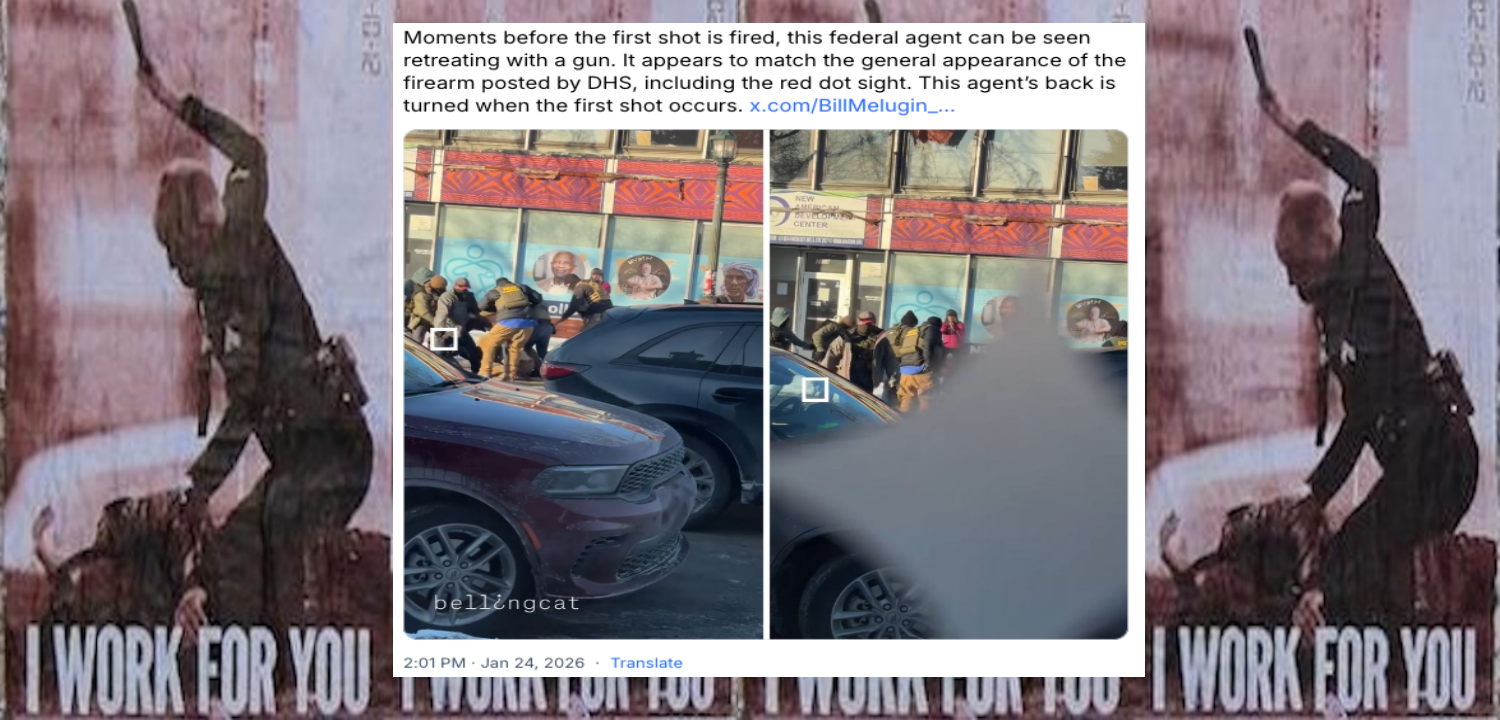In 25 years, no Criminal Charges Against Police Officers recommended in Milwaukee "Inquests": Expect Only Racism in Custodial Death of Derrick Williams
/ In photo, white men who practice racism, Milwaukee County District Attorney John Chisholm (right) and Milwaukee police Chief Edward Flynn discuss the in-custody death of black man, Derek Williams and the revised ruling in the case on Sept. 24. Williams suffocated to death while handcuffed, naked from a strip search, in the back of a police car. He repeatedly told white police officers he couldn't breathe for at least 15 minutes between the time of his arrest and his death. They repeatedly ignore him as he suffocated to death. It is captured on graphic video which was released last month. (graphic video below, no sound for first minute) From [HERE] In more than 25 years, no Milwaukee County inquest jury has recommended criminal charges against a police officer involved in a fatal shooting or in-custody death.
In photo, white men who practice racism, Milwaukee County District Attorney John Chisholm (right) and Milwaukee police Chief Edward Flynn discuss the in-custody death of black man, Derek Williams and the revised ruling in the case on Sept. 24. Williams suffocated to death while handcuffed, naked from a strip search, in the back of a police car. He repeatedly told white police officers he couldn't breathe for at least 15 minutes between the time of his arrest and his death. They repeatedly ignore him as he suffocated to death. It is captured on graphic video which was released last month. (graphic video below, no sound for first minute) From [HERE] In more than 25 years, no Milwaukee County inquest jury has recommended criminal charges against a police officer involved in a fatal shooting or in-custody death.
From the time he took office in 2007 until last month, District Attorney John Chisholm had never ordered an inquest - largely because he didn't want to give families false hope that officers would be charged.
Last fall, when Chisholm first reviewed the July 2011 death of Derek Williams in Milwaukee police custody, he employed the same philosophy: He met with Williams' family members and their attorneys, showed them the squad video that captured Williams' pleas for help and struggle to breathe, and explained why he believed the officers involved acted professionally and in accordance with the law. He would not give them a copy of the video. And he refused to call for an inquest.
But now, after a revised finding from the medical examiner and a public outcry, he's changed his mind.
"There are some cases where a public inquest is appropriate, and this is one of those cases," Chisholm said last week. "There was a change in the medical finding and there needs to be public scrutiny of the entire process, and I do not have a problem with that."
His decision to order an inquest came late last month, after the video was posted on JSOnline and the medical examiner changed the ruling in the case from natural death to homicide as the result of a Journal Sentinel investigation. The newspaper first requested the video and police reports regarding the case in November 2011.
Homicide in forensic terms means "death at the hands of another," and does not necessarily mean a crime was committed.
Chisholm, the Police Department and the civilian Fire and Police Commission - all of whom viewed the video months ago and cleared the officers involved - have reopened their inquiries in light of the medical examiner's new ruling.
While Chisholm now says there is value in a public airing of the facts, critics say the inquest process is inherently biased.
Under the law, the prosecutor is the only lawyer with a voice in the proceedings. Inquest jurors never hear from the families of the dead or from their attorneys, unless the prosecutor agrees to ask witnesses their questions. There is no cross-examination. Witnesses may only be called by prosecutors, who critics say are inclined to clear officers because they work closely with police and rely on them to build cases.
Attorneys who have represented the families of the dead say unless substantive changes are made to the process, the Williams inquest will be little more than window dressing.
"They just put out the bare bones evidence and nobody argued in favor of it being criminal," said Milwaukee attorney Merrick Domnitz, who has represented families in inquests over the past 35 years. "It was the district attorney presenting evidence against their partners in the criminal justice system. Time and time again, that just left the public feeling empty about the result."
Attorney Jonathan Safran, who represents Williams' girlfriend and three young children, agreed.
"Certainly the family wants to have a more active involvement than has been allowed at prior inquests," he said. "The process itself certainly has seemed to over the years reflect that it was somewhat biased toward the police officers, and not reflective of a broader overall attempt to get all of the facts. In my mind, it will not be necessarily a worthwhile process if it is conducted in the way these have been conducted in Milwaukee County in the past."
Chief Judge Jeffrey Kremers has named John Franke, a former judge and assistant U.S. attorney who prosecuted organized-crime boss Frank Balistrieri, as special prosecutor to conduct the inquest. Either he or the state Department of Justice will make the final decision on state-level charges, according to Chisholm. Milwaukee County Circuit Judge Kevin Martens will preside over the inquest. Dates have not yet been set.
U.S. Attorney James Santelle also could file criminal charges. City, county and state officials, as well as community activists and protesters, have called on Santelle to open both a federal criminal investigation and a more sweeping examination into a possible pattern of civil rights violations by the Police Department.
A differing history
Inquests have been around in some form since the 1800s. During an inquest, a jury hears the facts surrounding a fatality and gives an opinion on whether charges should be filed.
Designed to help prosecutors investigate suspicious deaths, inquests have been used most often in cases with uncooperative witnesses. That's because a judge can do what investigators cannot: sanction a witness for not cooperating, grant immunity or force someone to answer questions.
The only exception: If a witness invokes his or her Fifth Amendment right against self-incrimination.
Officers have taken the Fifth at inquests in the past. For example, at the last inquest ordered by Chisholm's predecessor, E. Michael McCann, a corrections officer at the Milwaukee Secure Detention Facility refused to testify about an inmate who was found hanged in a janitor's closet. Jurors found that no one had been criminally negligent in the case, and no one was charged.
McCann convened inquests into police use-of-force deaths any time the families requested them. He did not see them as an investigative tool, McCann told the Journal Sentinel in 2005. Rather, he considered them a mechanism to share facts with the community that might bring about changes in Police Department policy.
Since 1985, just two Milwaukee County inquest juries did not completely clear officers, based on a 2005 Journal Sentinel investigation and a review of more recent cases.
In 1998, then-Milwaukee police Officer Byron Andrews shot and killed motorist Antonio Davis. Inquest jurors ruled the death an accident but noted on the verdict form that they believed there had been "severe negligence on the part of Officer Byron Andrews."
In June 2003, an inquest jury rejected a self-defense argument by Officer Brian Switala of the University of Wisconsin-Milwaukee police, who fatally shot Joseph Bauschek of Greenfield in the back after a car chase. The jury said that while the shooting wasn't an accident, there wasn't enough evidence for a charge of second-degree intentional homicide.
On one occasion during the 25-year period reviewed by the Journal Sentinel, McCann charged an officer with first-degree intentional homicide even though inquest jury found his actions justified.
Off-duty officer Alfonzo Glover shot Wilbert Prado eight times after a traffic altercation in 2005. With Franke as presiding judge, an inquest jury cleared the officer. Hours after he was charged, Glover committed suicide. A federal civil rights case against the city by Prado's family is set to go to trial later this month.
An inquest jury also found no wrongdoing on the part of Officer Thomas Grady, who shot Daniel Bell in the back in 1958. With McCann prosecuting, Grady pleaded guilty to reckless homicide and perjury 20 years later, after his partner said Grady planted a knife in Bell's hand.
The Williams inquest will be among the first to feature squad video as evidence.
Milwaukee police cars have been equipped with cameras only since 2005. Jurors at a 2002 inquest into the death of Michael Page Jr., who was shot by a Milwaukee police officer after a chase from Wauwatosa into Milwaukee, viewed video from the Wauwatosa squads. They found the shooting justified, and the officer was not charged.
A first step
Bringing in Franke, who is now outside the system, is a positive first step in making the Williams inquest effective, said attorney Mark Thomsen, who has represented several plaintiffs in civil rights cases against the city.
"My assumption is that former assistant U.S. attorney and judge Franke will do his professional best to make sure that the community knows the whole truth and that the officers' conduct won't simply be whitewashed," Thomsen said.
Franke, who declined to comment for this story, must be given all the tools he needs to thoroughly investigate the case, including funds to hire outside medical and police practice experts, Thomsen said.
Franke is not being paid for his work, according to Chisholm. Investigators from the state Department of Justice will assist him in fact-finding. If experts are needed, they can be hired on a contract basis, Chisholm said.
Franke also needs the authority to file charges regardless of the inquest jury's recommendation, said Robin Shellow, who represents Williams' mother.
In light of Santelle's public statements that he is considering a federal investigation, Shellow said she is worried that the officers involved in Williams' death will cite the Fifth Amendment and refuse to testify. If they do, that shouldn't be enough to shield them from prosecution, she said.
"In this particular inquest, where the special prosecutor, John Franke, is not a member of the district attorney's office and successfully prosecuted Milwaukee's most notorious organized-crime family, I am convinced that if he believes a crime has been committed, he will pick his horses and ride them to victory," she said.













































































































































































































































































